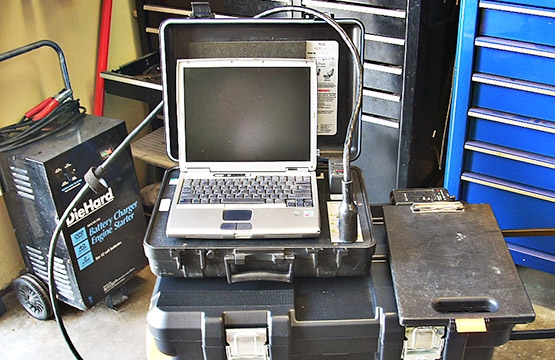

I urge you, set your iPhone, iPad or Droid phone down for a few minutes, quit watching your HD LED 3D television, and spend a few minutes reading this blog.
It’s interesting to me that most of us have to have all the latest “high tech” gadgets in our personal lives, but are cautious even resistant to change in the work place. I’ve heard the statement (and similar ones) for years in our industry, “I’ve been testing my motors with a megger and a “wiggy” for years and that’s all I need.” Frankly I have difficulty understanding this statement, unless it’s intimidation of new technology.
Cost is a non-issue. Implementing a motor testing program historically pays for itself many times over. Over the years I’ve been in most every type of industrial facility; from nuclear power plants to off-shore oil rigs, 2,500 feet below the Earth’s surface in a salt mine to NASA research facilities, from meat and poultry plants to airport physical plants. One thing is common among all of these facilities, few people understand how motors work. Technical schools and universities spend little time teaching motors. An electrical engineer may get a few days on motor theory as part of the Electrical Engineering curriculum. Given this knowledge void, it is also rational to assume that testing procedures are also an area of insufficient knowledge. It is even difficult for service companies and motor tester manufacturers to market because there are few people knowledgeable in the field to adequately market their products and services.
In 1986 EPRI, the Electric Plant Research Institute, funded General Electric to study the causes of motor failures on medium and high voltage motors. Upwards of 47% of the failures were attributed to electrical faults. The study showed a definite need for specialized motor testing. Several companies answered the call and developed specialized equipment for motor testing.
Motor test instruments are not complicated. They are simply test equipment driven by a computer and specialized software. Any electrician knows what a volt and amp meter is. All have used an ohmmeter or megohmeter. An inductance and capacitance bridge are also common knowledge. When the circuitry for these instruments are placed in a rugged case with a lap top computer they become magic and for some a source of intimidation.
All that is necessary to overcome this intimidation factor is knowledge. We have found at The Snell Group that a review of fundamental electrical theory, motor construction, and theory of operation training, takes away the intimidation and provides for effective and successful utilization of the specialized motor test instruments. So, don’t be intimidated! Get the knowledge you need and embrace technology for motor testing.